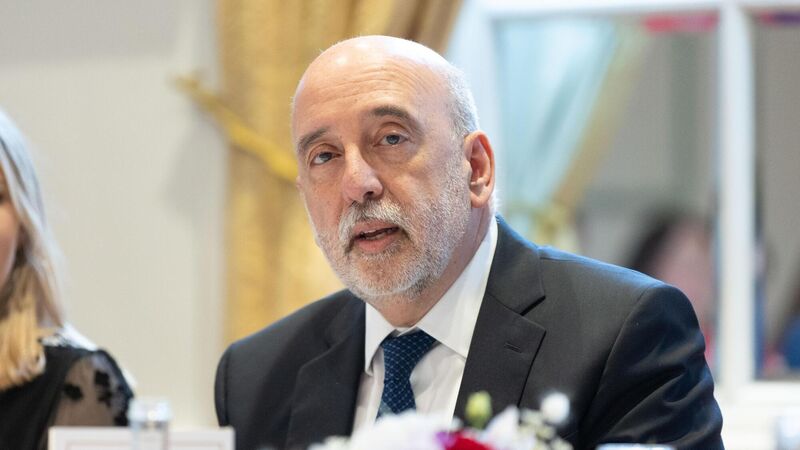Unbacked Crypto likened to 'ponzi scheme' by Central Bank Governor as market climbs from post-crash low

Governor of the Central Bank of Ireland Gabriel Makhlouf at Cork's Metropole Hotel. Photo: Darragh Kane
As Bitcoin and wider crypto markets push higher following a challenging winter, Central Bank of Ireland Governor, Gabriel Makhlouf has warned that lessons learned should not be forgotten, with last year showcasing the "many failures," of the crypto world.
Taking specific aim at unbacked assets, the Central Bank Governor likened the purchases of products like Bitcoin, Ethereum and other leading unsupported currencies to buying a lottery ticket - "You might win but you probably won’t."











